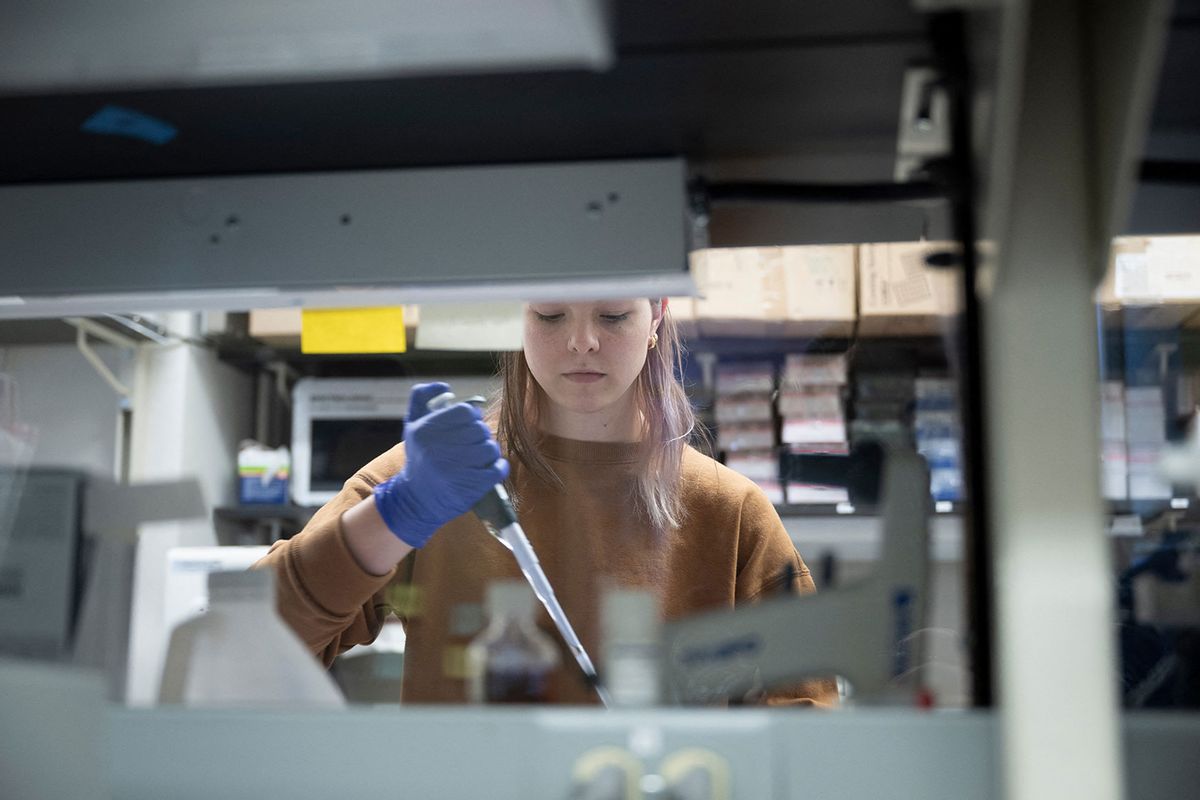Meetings and panels across federal science and health agencies were abruptly cancelled Wednesday, prompting fresh concern over how a potential remaking of the agencies by President Donald Trump's administration could interrupt important research and official responses to disease outbreaks, including a surge of H5N1 bird flu in dairy cows and poultry.
According to Stat News, a scientific publication, the cancelled meetings include several gatherings of the National Institutes of Health (NIH) study sections, which review applications for fellowships and grants; a Jan. 28-29 meeting of the Presidential Advisory Council for Combating Antibiotic-Resistant Bacteria; and a Feb. 20-21 meeting of the National Vaccine Advisory Committee, which advises the Department of Health and Human Services on vaccine policy and development.
Some of the meetings were not rescheduled. It's unclear whether the cancellations were related to the Trump administration's freeze on most federal health agencies' travel and external communications until Feb. 1. Because of that freeze, spokespeople from affected agencies were unable to answer questions to reporters about the meetings, but one told Stat News: “this is a short pause to allow the new team to set up a process for review and prioritization. There are exceptions for announcements that HHS divisions believe are mission critical, but they will be made on a case-by-case basis.”
The Trump administration is expected to impose pauses for other agencies as it gets its own appointees in place. While a communications pause is not unusual at the start of a presidential term, the uncertainty over how long this one will last, the addition of a travel ban and cancelled meetings, is likely to cause significant disruptions across the whole system, experts said.
“This kind of disruption could have long ripple effects,” says Jane Liebschutz, an opioid addiction researcher at the University of Pittsburgh, told Science.org. “Even short delays will put the United States behind in research.” She said that she and her colleagues are feeling “a lot of uncertainty, fear and panic."
The uncertainty of how long the cancellations will take effect could cause immense stress, said Rebecca Pompano, a chemist and biomedical engineer at the University of Virginia whose study session was canceled 20 minutes before it was supposed to start. It would also "delay grants being distributed, which affects the ability of labs to pay their students and postdocs and staff ... in some cases, if there was a gap in funding, it could result in someone either not being hired at all or having to be laid off." Compounding the stress, she added, was the specter of Secretary of Health and Human Services nominee Robert F. Kennedy, a vaccine denier who has said that he would subject federal health agencies to extensive overhaul and personnel purges.
The communications freeze could also delay information sharing over unfolding health events — three new reports on the H5N1 outbreaks set to be published this week have been held back, according to a CDC official who spoke to Stat News anonymously, and it's unclear when they'll be released.



Shares